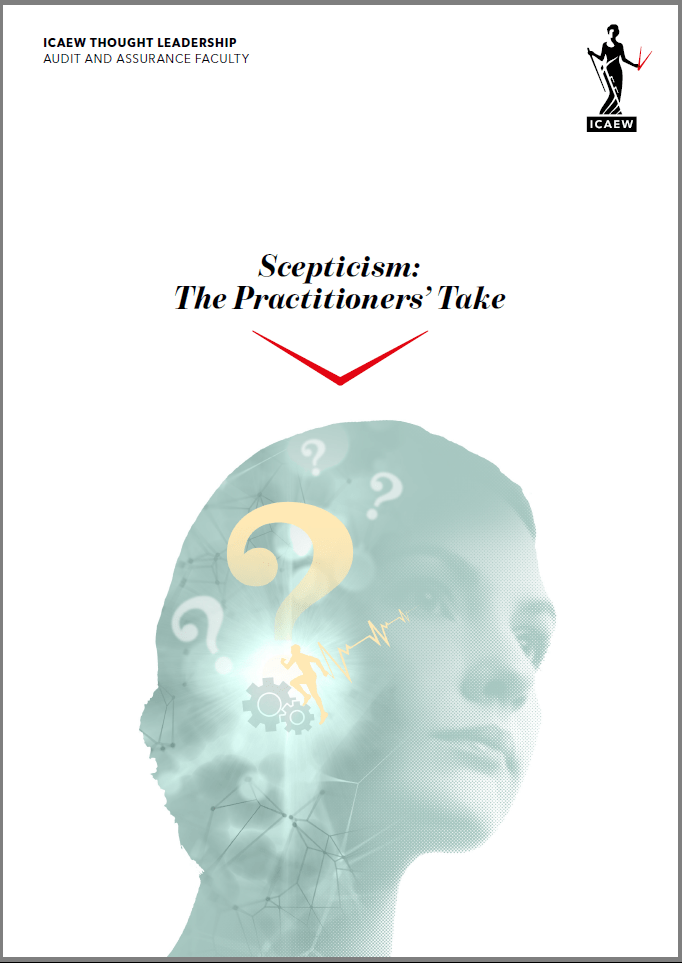Introduction
Without professional scepticism the audit has no value. It’s at the heart of what auditors do, but the idea of scepticism is not easy to pin down. The urge to use it, or rather the lack of it, as a catch-all for anything that is wrong in auditing or financial reporting should be resisted. Not everything is the result of a lack of scepticism.
Of course, auditors can do better, as can management and audit committees, but the important question is how?
What’s been missing from the debate until now is the practitioners’ take on how scepticism can be enhanced and what “good” looks like.
Scepticism: the practitioners' take is a thought leadership report developed by the Audit and Assurance Faculty, in conjunction with International Standards.

What's in the report?
This report is based on a series of interviews with practising auditors, training providers and audit regulators. It sets out the views of those with first-hand experience of real world auditing and dealing with the pressures of deadlines and budgets on the nature of scepticism, who is responsible for it, and what needs to be addressed to improve it.
Enhancing scepticism: key takeaways
Our interviews highlighted the following actions required to enhance scepticism:
Structural changes are needed within firms
These are changes to methodologies, working practices, training, recruitment and retention to help encourage scepticism in the field.
Auditors are not the only people who can or should exercise scepticism
Auditors challenge other stakeholders to practice what they preach by exercising scepticism too. Audit regulators should share “what good looks like”.
Scepticism is about quality and not quantity
Scepticism is about asking the right questions and not simply lots of them. It’s about getting to the right answer and recognising what can go wrong – and having the structures in place so more junior staff can learn to apply it from those with that experience.
Firms should not send out mixed messages
Audit firms cannot encourage scepticism in the classroom and then discourage it in the field. Audit juniors need time and opportunity to develop these skills. Budgets may have to accommodate the pursuit of unprofitable lines of enquiry.
A requirement to seek out contrary evidence won’t enhance the exercise of scepticism
Requiring auditors to seek out such evidence does not seem feasible, desirable or necessary within the current framework.
To be sceptical, auditors must manage the tension between the demands of independence and the need to fully understand the business
Auditors need a bank of knowledge to enable them to react quickly in a changing environment. They also need to be able to step back and consider the bigger picture. Without intimate knowledge of a business, auditors cannot mount an effective challenge to management.
Where next?
ICAEW will continue to explore this issue by looking for further examples of “what good looks like”, and considering how preparers and auditors identify areas where more scepticism needs to be applied and what they do in such cases that they would not do otherwise.